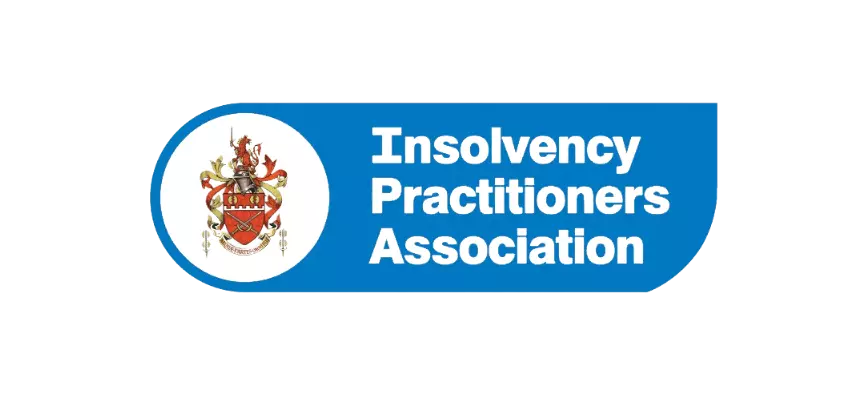When it comes to getting out of debt, there are a few different options available. Two of the most popular are Individual Voluntary Arrangements (IVAs) and Debt Management Plans (DMPs).
And whether you choose debt management, IVA or other debt solutions, you need to make sure it’s the right choice for you.
So DMP or IVA, which one is better for you?
In this article, we explore the key differences between IVAs and DMPs to help you make the best decision for your personal circumstances.
How does an Individual Voluntary Arrangement (IVA) Work?
An IVA is a legally binding agreement between you and your creditors. It involves making affordable monthly payments towards your debts for a set period of time (typically five to six years). Once the term is up, any remaining debt is written off.
It guarantees to freeze interest and charges on your debts, as well as stop any further action from your creditors.
How does a Debt Management Plan (DMP) Work?
A DMP is an informal debt solution between you and your creditors to repay your debts in affordable monthly payments.
In some circumstances, it can freeze interest and charges on your debts, but it doesn’t have the same legal protection and guarantees as an IVA.
How is an IVA different to a debt management plan?
One key difference between an IVA and a debt management plan is the legal protection they offer.
An IVA is a legally binding agreement that stops your creditors from taking further action against you, while a DMP does not have this guarantee.
The differences between an IVA and a DMP
Whist both debt solutions involve making affordable monthly payments towards your debts, there are a few key differences to be aware of.
Protection from creditors
In an IVA, your creditors are legally protected from taking any further action against you, such as chasing letters or phone calls.
A DMP does not offer this guarantee and your creditors can still take action.
Frozen interest and charges
Interest and charges are guaranteed to be frozen in an IVA.
With a debt management plan, this is not always the case and will depend on your individual circumstances and creditors.
Length of agreement
An IVA is typically for a fixed term of five to six years.
A DMP does not have a set end date and will continue until all debts are repaid in full.
Debt write-off
At the end of an IVA, any remaining unaffordable debt is written off.
With a DMP, you will continue making debt repayments until all creditors to who you owe money to are repaid in full.
Contact with creditors
In an IVA, you will not have contact with your creditors as your insolvency practitioner will deal with them on your behalf.
With debt management plans you will still have contact from your creditors. The volume of this contact may vary depending on your individual circumstances and creditors.
Asset protection
In an IVA, your assets (such as your home or car) are protected from being repossessed.
In a DMP, there is no guarantee that your assets will be protected and it may depend on individual circumstances and creditors.
Who manages the plan
In an IVA, your insolvency practitioner will manage the plan on your behalf.
With a DMP, you will manage the plan yourself or with support from a debt advice agency.
Public Knowledge
An IVA will be recorded on the Individual Insolvency Register.
Debt management plans an informal agreement and remains private.
Eligibility requirements
To be eligible for an IVA, you must:
– have unsecured debts of at least £6,000
– have a regular income to afford the monthly repayments
– be unable to pay off your debts in a reasonable amount of time.
There are no specific eligibility requirements for a DMP, however, you must have enough disposable income to make affordable monthly payments towards your debts.
Initial fees
An IVA should not involve initial set-up fees, and any costs will be included in your monthly repayments to creditors.
There may be a fee for setting up a DMP, but this will depend on the provider you choose to work with.
It’s important to note that it is free to set up a DMP yourself without using a debt advice agency.
Can you change from DMP to IVA?
As a debt management plan is an informal agreement, it is possible to switch to an IVA if you meet the eligibility requirements and it’s deemed a suitable solution for your circumstances.
However, any initial fees paid for setting up a DMP will not be refunded in this process. It’s important to seek professional debt advice before making any decisions on debt solutions.
Which debt solution do you qualify for?
It’s important to seek professional debt advice before deciding on a debt solution.
A specialist debt advisor will be able take a full assessment of your current situation, and fully inform you of all the options available as well as the potential outcomes.
How do I apply for a DMP or an IVA?
To apply for a DMP, you can either contact a debt advice agency or set up a plan yourself directly with your creditors.
For an IVA, you can only undertake the application process through a fully licensed insolvency practitioner. The insolvency practitioner will also be responsible for managing the proposed IVA repayment plan on your behalf.
It’s important to make sure that any insolvency practitioner or debt advice agency you choose to work with are authorised and regulated by the appropriate governing bodies, such as the FCA or Insolvency Practitioners Association.
IVA or DMP – Which one is better?
There is no one-size-fits-all solution for dealing with problem debt, and what may work for one person may not be suitable for someone else.
To fully understand what debt solutions are available to you and which may be the best option, it’s important to seek professional debt advice.
That way, you will receive an in-depth financial assessment that takes into account all of your individual circumstances, financial commitments and the options that are available to your situation.
You can then make an informed decision on the best debt solution for you.
IVA vs DMP – Conclusion
Both an IVA and a DMP can be effective solutions for managing problem debt, but they both have different eligibility requirements and outcomes.
However, the best option for you will depend on your individual circumstances and financial commitments.
This is why it is important to have good knowledge of all the options available to you, both positive and negative.
The best way of gaining this information is to seek professional debt advice from a specialist advisor.
They will be able to assess your situation and fully inform you of all the options available, as well as the potential pros and cons.
If you are seeking further debt advice, you can contact our specialist debt advisors today for free, confidential conversations on finding the best solution for your debt problems.
FAQs
What do IVA and DMP stand for?
IVA stands for Individual Voluntary Arrangement, whilst DMP stands for Debt Management Plan.
Will my credit rating be affected by an IVA or DMP?
Both an IVA and a DMP will have a negative impact on your credit rating, as they both involve missed or reduced payments to creditors.
However, it’s important to weigh up the long-term benefits of being debt-free against any potential short-term impacts on your credit rating.
Can my employer find out about my IVA or DMP?
An IVA will be recorded on the Individual Insolvency Register, which is a publicly accessible database. However, unless you are intentionally looking for this information, it is unlikely that your employer would come across it.
A DMP is a private agreement between you and your creditors, so there is no public record of the plan. Therefore, it is unlikely that your employer would find out about your DMP unless you inform them.
Can I set up an IVA or DMP on my own?
You can set up a DMP yourself without using a debt advice agency. However, you can only set up an IVA through a licensed insolvency practitioner.
Always make sure that any insolvency practitioner or debt advice company you appoint are authorised and regulated by the appropriate bodies such as the Insolvency Practitioners Association or the FCA.







